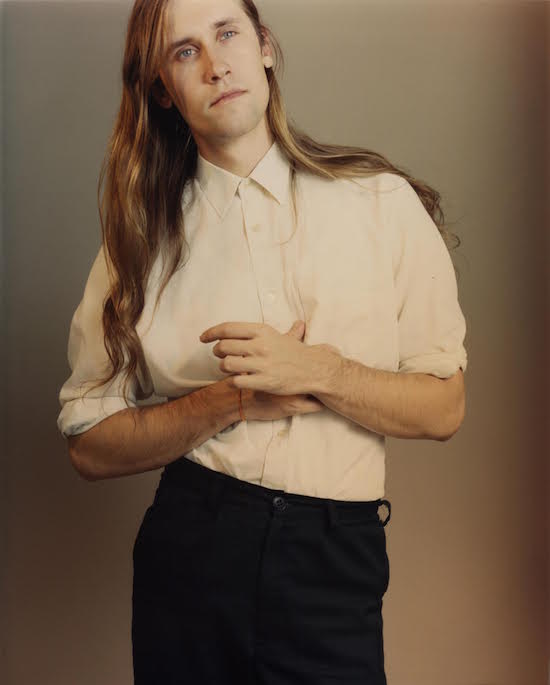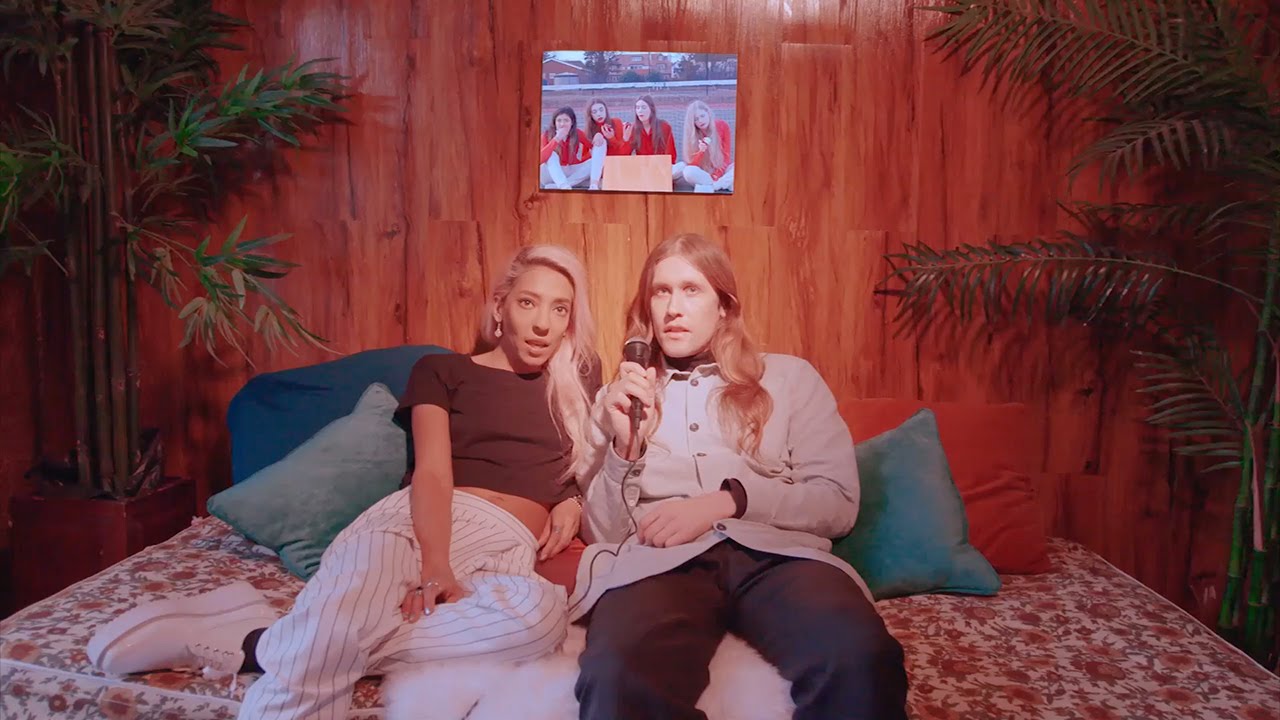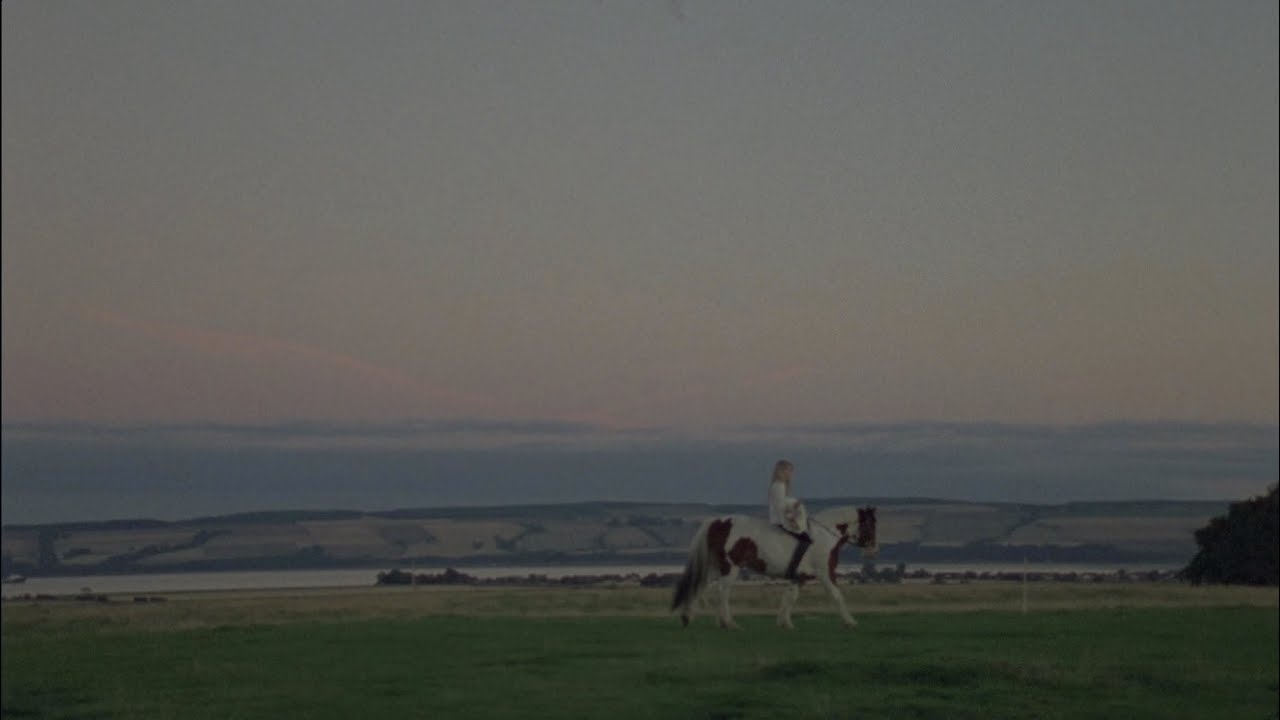"To me, it feels like an experiment. Like maybe it just felt nice to try that out," says Jaakko Eino Kalevi of the more emotional bent of his new album.
As a statement, it’s a pretty apt representation of Kalevi. For one, the Finnish musician is economical when it comes to analysing his own work (talking later about whether he’s a perfectionist, his answer simply boils down to: "I don’t know – how can you say no?"), but it also touches on the cycle of sonic approaches that he’s pursued previously, all touched with a kind of restrained, subtle sensuality. There are vestiges of the upbeat, dancefloor experiments of last year’s Yin Yang Theatre EP on ‘Deeper Shadows’, while the decidedly 60s-gazing ‘Don’t Ask Me Why’ seems to formalise the wending jazzy instrumentals of Töölö Labyrinth, from 2011.
If there is one overriding sound of the new record, though, it’s hook-heavy pop, the type that has its precursor in the excellent Dreamzone EP and before that, the Modern Life album, with its magnificent single ‘Flexible Heart’ sounding like The Human League playing ‘Blue Monday’. ‘Double Talk’ has the glorious loucheness of Destroyer’s ‘Kaputt’, while ‘Mind Like Muscle’ basks in the deluxe production sheen of Hall & Oates. Kalevi’s voice, meanwhile, occupies more space than ever, revelling in its overtones of Arthur Russell and Nick Drake. "I wanted to tie it together more," says Kalevi, explaining the album’s consistency, "to have a feeling that it could have been made in one session, not a compilation of songs. Töölö Labyrinth had one mood, it wasn’t that all over the place, but yeah, I wanted to make it like a band record."
Unifying his sound is a bigger task for Kalevi than most – he’s been prolific. Since 2007, he’s put out five albums, including the aforementioned Modern Life and one with his friend and occasional collaborator Long-Sam, on the Helsinki imprint Helmi Levyt, three on his own label, JEKS Viihde, one being the cassette-only Laulaa, another a collaboration with the Japanese painter Hiroaki Koshiba, and a clutch of singles and EPs on other labels, as well as two more LPs under his birth name, Jaakko Savolainen. Dreamzone marked his debut on Domino subsidiary Weird World (he’s also the first Nordic act the UK indie grandees have signed) and saw him getting remixes from the likes of Heatsick and labelmates Peaking Lights.
And, up until early last year, music was only a part-time pursuit for Kalevi, whose day job was working on Helsinki’s 115-year-old tram system. "I think the most productive time was early in the mornings when I had a coffee rush and I was listening to music," he says of the eight years he spent as a tram driver. "I used to write them [his songs] on the paper where I had the shift or then recorded bits into my phone. I was able to listen to my own songs and think what to do with them. It’s just basically driving around and listening to music!"
Now, having left his HKL Tram uniform on the peg and moved to Berlin, he’s put out his first full-length on Weird World. "It definitely seems that there will be more attention," says Kalevi of the record, and that’s a fair assumption. For one, there’s a sense that it’s consolidating the name he’s made for himself so far, quite literally: it’s self-titled and opens with a track christened with his initials. Beyond that, the production feels higher spec, part of which perhaps comes from Kalevi briefly relocating to Brooklyn to work on mixing the tracks, mostly recorded in Finland, with Nicolas Vernhes, who’s turned his hand to The War On Drugs’ Lost In The Dream and Torres’ Sprinter among other recent releases. Despite Vernhes’ high-profile indie credentials, Kalevi is, while by no means critical, not overflowing with enthusiasm for the process. "He came up with many good ideas. It was a good experience, but sometimes I felt it was difficult to communicate and talk about the music, then when I’m mixing by myself [I’m] not communicating." Did he shape the record in a way that Kalevi didn’t like? "He shaped it, for sure! He seemed to know… We shared some kind of taste in the sound, that’s why I chose him in the first place. When sometimes it was hard to talk about the music… I’m happy with the results, he brought good elements."
If Kalevi is a little cool about working with Vernhes, it may stem from the fact that, heretofore, he’s been very much a one-man band, playing all the instruments on his records and mostly self-producing. He started playing guitar at 11, then took up the drums, later delving into hip-hop beatmaking and most recently acquiring a saxophone, which made its debut on Dreamzone. (His tendency towards understatement is matched with a wonderful share of humility. "I’m still not great at it," he says of his saxophone skills. But you played it on ‘No End’? "Yeah, true! That was after just two weeks of practising," he considers.)
It’s maybe from this individual approach, too, that Kalevi’s songs’ singular sound comes. ‘No End’, in fact, is a case in point: a four-minute pop song gently marshalled by tight drums and bass, but washed over by hazy synths and a hypnagogic guest vocal turn from Suad Khalifa (who reappears on a number of tracks on the new album). The lyrics, silted up with reverb, feel pleasingly lost in the mix, only certain lines – "I guess it’s useless to say/ I want you to stay" rings out, futility felt – emerging with definition. It’s romantic pop music with sleep in its eyes, the intense edge of a dream just taken off by the act of waking.
This soporific quality has been touched on before – so it goes if you call a record Dreamzone – with one interview uncovering the fact that Kalevi occasionally visits an online dream forum for lyrical inspiration. (For the record, it should be noted he didn’t actually use the technique for Dreamzone – "it’s just like a fun fact," he laughs). But, talking to Kalevi, you get the sense that this dreaminess, a deliberate not knowing, is something he revels in. For example, he’s been in Berlin for a year, yet seems at no rush to learn German: "It’s kind of strange to live in another culture, where you don’t understand what people are talking about in the subway, but that’s also nice. I like it. It makes sense. It somehow feels intense to live there. I become more conscious about things. It’s not that natural."
This gap between experience and comprehension, hardwiring an element of mystery into his music that’s become Kalevi’s calling card, is best exemplified on ‘Don’t Ask Me Why’. With its hard-panned drums, tinny organ and speak-singing, the song almost brings to mind Serge Gainsbourg. Equally, cast in the sonics of yesteryear, it belies a love of classic pop, with Kalevi citing Scott 4 as a long-lasting influence, describing it, in terms that could easily be a blueprint for his own music, as "kind of romantic and dreamy but also there is something haunting at the same time". The press release for Jaakko Eino Kalevi says that he expresses "his most intimate thoughts in Finnish", in reference to ‘Don’t Ask Me Why’s spoken utterances, as well as the prog-touched closer, ‘Ikuinen Purkautumaton Jännite’. "It’s just that I naturally have a more intimate relationship with the Finnish language," says Kalevi, explaining his reasoning for making the distinction. "It’s not that there are any secrets, it’s more… it’s a kind of secret language. Most of the people here [in the UK] don’t speak Finnish, so they don’t know what I’m singing there, but I like that effect. It gives space to the imagination." He pauses. "And I think it sounds nice."
Jaakko Eino Kalevi is out now on Weird World. He plays the Courtyard Theatre in London on Friday, June 19, and Brighton’s Green Door Store on June 23. He’ll be returning to support Unknown Mortal Orchestra on their European tour, which begins at Debaser Strand in Stockholm, Sweden, on September 10; head here for further details





